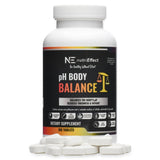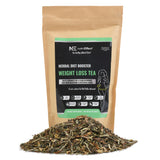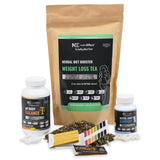Understanding the impact of plant-based proteins on your metabolism can give you a sense of control over your health. By incorporating these proteins into your diet, you can boost your metabolism, leading to better energy levels, improved weight management, and enhanced overall health. Not only are they nutrient-rich, but they also offer numerous health benefits that support a healthy metabolism.
Nutrient-Rich and Low in Calories

Plant-based proteins are packed with essential nutrients while typically being lower in calories and fat than animal proteins. Foods like beans, lentils, chickpeas, tofu, and quinoa provide vitamins, minerals, and fiber, which are crucial for metabolic health without adding extra calories.
Enhanced Digestive Health

The high fiber content in plant-based proteins promotes better digestion and regulates blood sugar levels. Fiber slows digestion, helping you feel full longer and preventing overeating. This can lead to a more efficient metabolism as your body processes these nutrient-dense foods.
Anti-Inflammatory Properties

Many plant-based proteins, such as nuts, seeds, and legumes, contain anti-inflammatory compounds. Reducing chronic inflammation can help maintain a healthy metabolism and overall well-being, as inflammation can slow down metabolic processes and contribute to various health issues.
Muscle Maintenance and Growth Protein

is essential for muscle maintenance and growth, which supports a healthy metabolism. While plant-based proteins might be less concentrated than animal proteins, they can effectively support muscle health when consumed in adequate amounts. Foods like soy products, quinoa, and lentils provide all the essential amino acids your body needs.
Improved Heart Health

Plant-based proteins are often lower in saturated fats and cholesterol, making them heart-healthy. A healthy cardiovascular system supports efficient blood circulation, vital for a robust metabolism. Beans, lentils, and soy products have been linked to improved heart health and a more effective metabolic system.
Choosing plant-based protein not only benefits your metabolism but also contributes to a more sustainable food system. By making these sustainable dietary choices, you can feel a sense of accomplishment in supporting a lower carbon footprint and requiring fewer resources to produce. This is a win-win situation for your health and the environment.
Practical Tips for Incorporating Plant-Based Proteins

To boost your metabolism with plant-based proteins, start by incorporating legumes into your diet. For a protein-rich boost, beans, lentils, and chickpeas can be added to salads, soups, and stews. Soy products such as tofu, tempeh, and edamame are excellent meal choices. Additionally, opt for whole grains like quinoa, bulgur, and farro, which provide a good source of protein. For snacks, keep almonds, chia, and pumpkin seeds on hand for a quick protein boost. Plant-based protein powders can be used in smoothies or as meal replacements to meet your protein needs.
Website:
https://nutri-effect.com/
Date Written:
September 13, 2024








